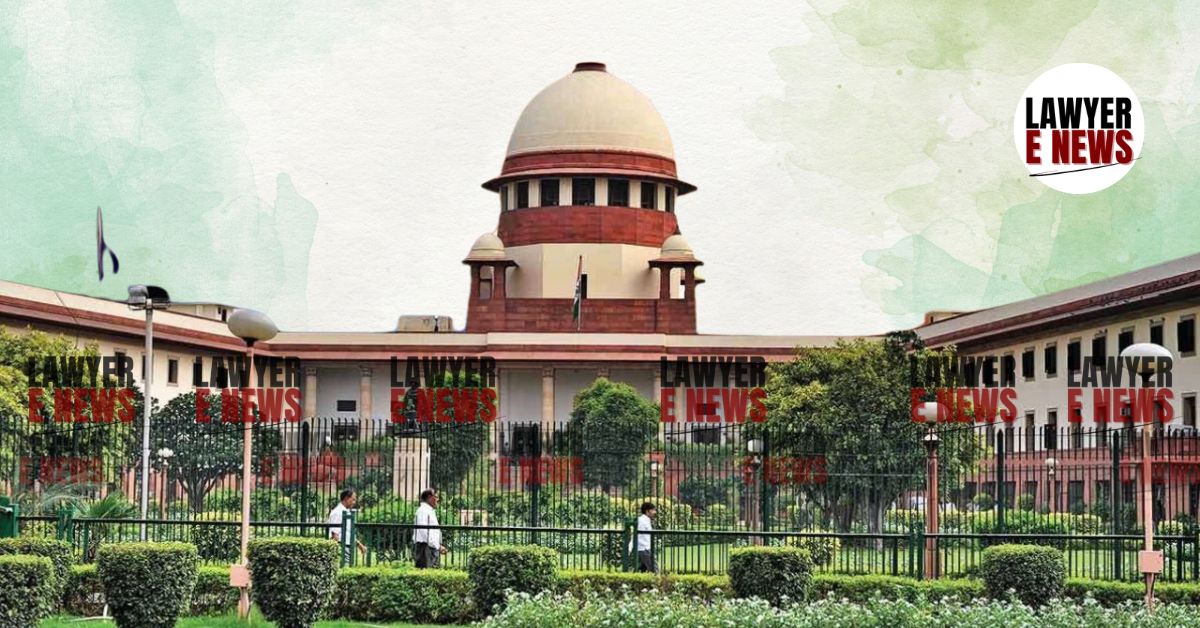-
by sayum
17 February 2026 8:32 AM



“In Hindsight, It Is Easy to Say More Could Have Been Done — But You Can’t Punish a Man Who Did His Best With Limited Force in a Riot Situation” — In a powerful rebuke to bureaucratic delay and retrospective punishment, the Supreme Court of India quashed the Delhi High Court’s order that had granted liberty to the disciplinary authority to reinitiate proceedings against a retired police officer for his alleged inaction during the 1984 anti-Sikh riots.
Justice Manoj Misra, speaking for the Bench, concluded: “It would be too harsh upon the appellant to undergo a fresh disciplinary process after more than four decades... Justice delayed cannot become persecution prolonged.”
From SHO in 1984 to Accused in 1992 to Final Relief in 2025
Durga Prasad, then Station House Officer at Kingsway Camp, was entrusted with maintaining law and order during one of independent India’s worst communal upheavals. After serving as ACP, he retired in 2004. In 1992 — eight years after the riots — he was charge-sheeted for alleged lapses in riot control.
The departmental inquiry exonerated him in 1999, but the disciplinary authority disagreed, imposed a penalty of reduction in rank, and ignored the officer’s defence and the Inquiry Officer’s clean chit.
The Central Administrative Tribunal upheld the punishment, but in 2022, the Delhi High Court quashed it, holding that the disagreement note was legally flawed, having prejudged guilt. Still, the High Court left the door open for the authorities to issue a fresh disagreement note — a liberty now struck down by the Supreme Court.
Supreme Court: “Omissions Must Be Judged With Empathy, Not Just Authority”
The Bench stressed that Durga Prasad’s actions during the riots reflected diligence, not dereliction. He had a skeletal force, and yet:
Secured gurudwaras and Sikh homes;
Ordered police firings and lathi charges;
Made over 100 arrests;
Was commended by his supervising officer.
Despite this, the disciplinary authority faulted him for not using tear gas, not causing injuries, and not maintaining exhaustive documentation.
The Court found this reasoning untenable: “The disagreement note is cryptic, ignores vital facts, and bases guilt on the absence of injury or detailed documentation — factors that cannot establish misconduct in a riot scenario.”
On Procedural Fairness: “You Can’t Rewrite Disciplinary History After Retirement”
The Court held that reviving proceedings now would serve no legal or moral purpose, noting that: “The officer has long retired. He is now around 80 years of age. No charge of personal benefit, corruption, or dishonesty has been made. The delay is not his doing — it is institutional.”
The Bench added: “When alleged misconduct flows from omission — not commission — it requires deeper empathy and contextual judgment.”
The Supreme Court allowed the appeal, set aside the High Court’s direction permitting a fresh disagreement note, and declared the disciplinary proceedings closed once and for all. It directed that Durga Prasad shall be entitled to all consequential benefits, including revision of pension.
“A disciplinary process that extends into a man’s twilight years despite exoneration is not justice — it is oppression masked in procedure.”
Date of Decision: April 23, 2025
